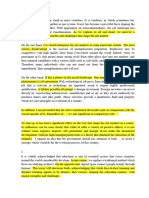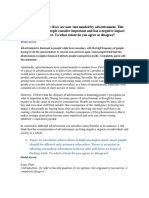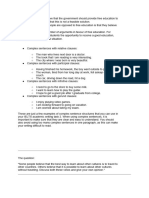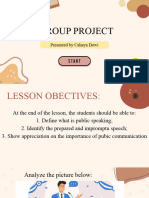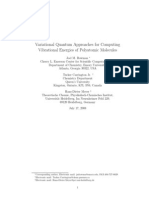0% found this document useful (0 votes)
21 views20 pagesWriting Task 2
The document provides guidance on various types of essays, including opinion, discussion, problem-solution, advantages and disadvantages, and double question essays, along with useful phrases, vocabulary, and grammar patterns for each type. It also includes several example essays discussing topics such as the importance of saving money, the impact of global food availability, competition versus cooperation, and the consequences of excessive smartphone use. Overall, the document serves as a comprehensive resource for writing effective essays on diverse subjects.
Uploaded by
sannsandar2001Copyright
© © All Rights Reserved
We take content rights seriously. If you suspect this is your content, claim it here.
Available Formats
Download as DOCX, PDF, TXT or read online on Scribd
0% found this document useful (0 votes)
21 views20 pagesWriting Task 2
The document provides guidance on various types of essays, including opinion, discussion, problem-solution, advantages and disadvantages, and double question essays, along with useful phrases, vocabulary, and grammar patterns for each type. It also includes several example essays discussing topics such as the importance of saving money, the impact of global food availability, competition versus cooperation, and the consequences of excessive smartphone use. Overall, the document serves as a comprehensive resource for writing effective essays on diverse subjects.
Uploaded by
sannsandar2001Copyright
© © All Rights Reserved
We take content rights seriously. If you suspect this is your content, claim it here.
Available Formats
Download as DOCX, PDF, TXT or read online on Scribd
/ 20


